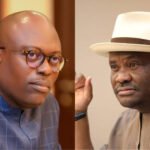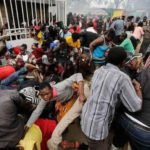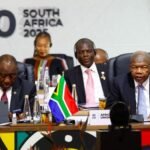The World Bank and the government of Liberia have signed financial agreements of US$ 64.2 million and ten million U.S. dollars for two projects.
Funded by the International Development Association (IDA), the projects, Liberia Electricity Sector Strengthening, and Access Project (LESSAP) and Recovery of Economic Activity for Liberian Informal Sector Employment (REALISE) aim to improve Liberia’s economy.
The Covid-19 pandemic has had a devastating impact on Liberia’s economy and people’s livelihoods and poses a major threat going forward.
According to the High-Frequency Phone Survey of Households conducted by the Liberia Institute of Statistics and Geo-Information Services, more than 70 percent of households reported experiencing food shortage and increased food prices.
With regard to electricity, Liberia’s civil war, which ended in 2003, destroyed much of the country’s power sector.
At approximately 12 percent, the country has one of the lowest electricity access rates in the world, according to the United States Agency for International Development (USAID).
‘Currently, only seven percent of the population has access to grid electricity with 21 percent having access to off-grid sources of electricity. At the same time, for those who have access, tariffs are high’, World Bank Country Director, Khwima Nthara, said.
‘It is very difficult to see how the Liberian economy can be transformed without a bold approach to solving the energy problem.
‘That is why the World Bank together with other development partners decided to approach this problem systematically’.
The full implementation of the first phase of the LESSAP project will increase access to electricity by 12 percent, according to Nthara.
On REALISE, the World Bank chief said the project will provide grants and business skills training to 4,000 vulnerable households to revive or start small businesses, as well as temporary employment and wages to 15,000 poor individuals, half of whom will be women.
‘Given the devastating impact of Covid-19 on the economy and people’s livelihoods, improved energy access will stimulate inclusive economic growth while support to the informal sector will help the most vulnerable Liberians to recover from the loss in incomes’, Nthara said.
The REALISE project will be implemented by the Ministry of Youth and Sports and the Liberia Agency for Community Empowerment (LACE).
Speaking at the signing of the agreements, Liberia’s Youth and Sports Minister, Zeogar Wilson, praised the World Bank for providing the financial support.
The government of Liberia aims to meet an anticipated peak demand of 300 MW and serve one million customers, connecting 70 percent of the population in Monrovia and providing access to energy to 35 percent of the rest of the country by 2030.
Source: World Bank
Photo source: Front Page Africa





